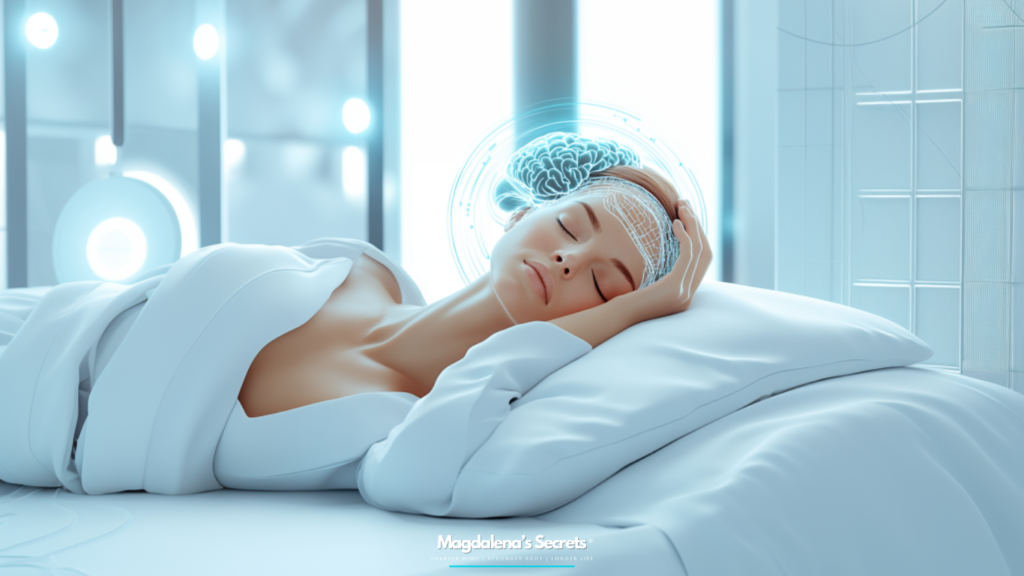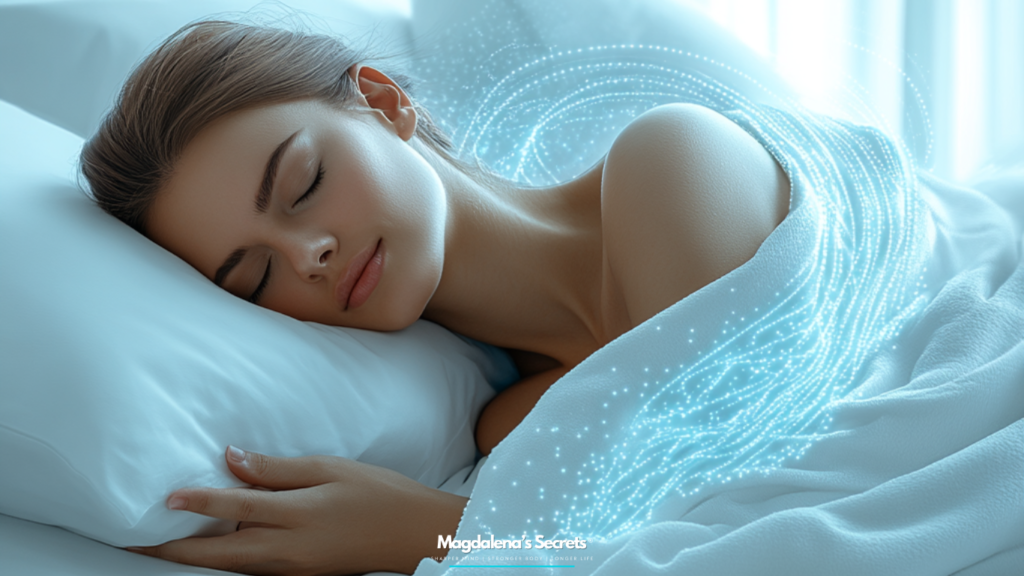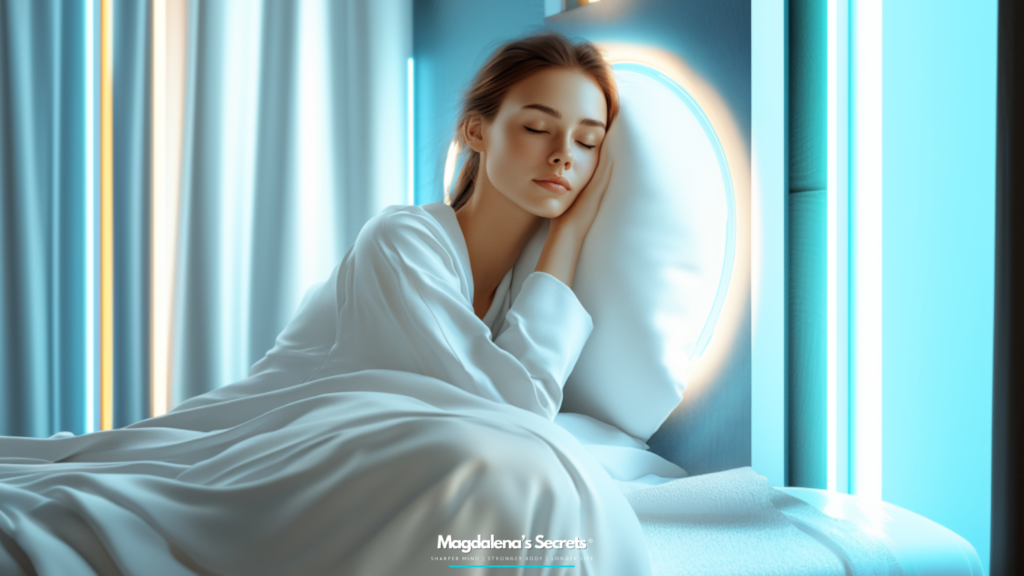Menopause is often spoken about in terms of hot flashes, mood swings, and hormonal changes—but recent research is uncovering a much deeper story. According to Dr. Lisa Mosconi, neuroscientist, director of the Women’s Brain Initiative at Weill Cornell Medicine, and author of The XX Brain, menopause is not just a hormonal event—it’s a neurological transition.
One of the most disruptive symptoms for women during this time? Poor sleep. And its effects go far beyond fatigue.
Menopause Begins in the Brain
“Menopause doesn’t start in the ovaries,” Dr. Mosconi says. “It starts in the brain.”
Her groundbreaking brain imaging studies show that perimenopause and menopause are linked to visible changes in brain structure, activity, and energy levels. As estrogen levels decline, the brain’s ability to maintain energy balance and regulate sleep becomes compromised.
Estrogen isn’t just a reproductive hormone—it plays a key role in brain function. It helps regulate neurotransmitters like serotonin and GABA, which are involved in mood and sleep regulation. When estrogen drops during menopause, so does the brain’s ability to fall and stay asleep, contributing to issues like insomnia, fragmented sleep, night sweats, and early morning waking.
The Sleep-Brain-Estrogen Connection
Dr. Mosconi’s research shows that the decline in estrogen affects several areas of the brain critical for sleep and memory, including:
- The hypothalamus, which regulates body temperature and sleep cycles
- The brainstem, which controls wakefulness
- The hippocampus, a center for memory and learning
- The prefrontal cortex, responsible for focus and decision-making
When sleep is disrupted, these regions can become even more vulnerable to cognitive decline, memory issues, mood changes, and even the early signs of Alzheimer’s disease. In fact, Dr. Mosconi found that brain scans of women in perimenopause already show metabolic slowdowns that may resemble patterns seen in the very early stages of dementia—years or even decades before symptoms arise.
Why Women Are More Affected Than Men
Two-thirds of Alzheimer’s patients are women. While it was once assumed this was simply due to women living longer, Dr. Mosconi’s work points to menopause as a key driver in this gender gap.
Sleep plays a major role in this equation. During deep sleep, the brain activates its glymphatic system—a powerful detox mechanism that flushes out beta-amyloid and other waste proteins. When sleep is poor, especially deep sleep, this cleaning process is interrupted, and toxins can accumulate.
For menopausal women who regularly wake up at 3 AM or toss and turn for hours, the brain’s ability to restore itself is greatly compromised.
How to Support Brain Health Through Better Sleep
Dr. Mosconi recommends a holistic approach to protecting the female brain during menopause, starting with restoring high-quality sleep. Some key strategies include:
• Sleep tracking with tools like the Oura Ring to understand your sleep patterns
• Maintaining consistent sleep and wake times, even on weekends
• Managing stress and cortisol levels with mindfulness or light evening movement
• Optimizing bedroom conditions: dark, cool, and quiet environments support deep sleep
• Exploring hormone replacement therapy (HRT) when appropriate, in consultation with a qualified practitioner
In her book The XX Brain, she emphasizes that sleep is brain medicine—especially for women during midlife. It’s not just about avoiding fatigue; it’s about preserving memory, emotional balance, and long-term neurological resilience.
Conclusion: Sleep Is a Brain Health Strategy for Menopausal Women
Menopause marks a profound transition in a woman’s life, and the brain is at the heart of it. As Dr. Lisa Mosconi puts it, “We must start thinking about menopause as a neurological event and treat it as such.”
Sleep, therefore, is not optional. For menopausal women, it is a key part of protecting brain health, reducing cognitive decline, and preventing long-term diseases like Alzheimer’s. With new tools, science, and personalized strategies, women can reclaim their nights—and their minds.




